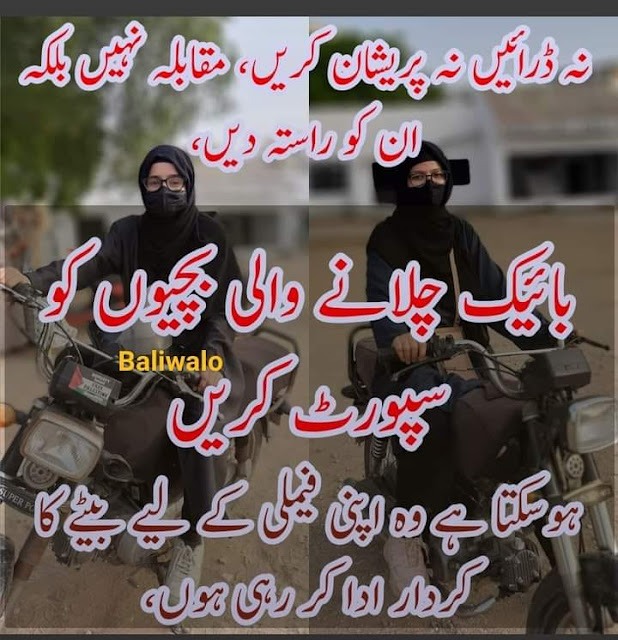Addressing Harassment of Female Drivers and Riders in Pakistan: A Call for Change
In Pakistan, seeing women driving cars or riding motorcycles is increasingly common, signaling progress towards gender equality and women's empowerment. However, this positive trend is marred by a disturbing issue: the harassment and teasing of female drivers and riders. This problem not only undermines women's confidence and safety on the roads but also reflects deeper societal issues that need urgent attention.
The Nature of the Problem
Harassment of female drivers and riders manifests in various ways, from verbal abuse and catcalling to aggressive behaviors like tailgating, honking, and physical intimidation. These actions are distressing for women and can lead to dangerous situations on the road, potentially causing accidents.
Cultural and Social Roots
Several factors contribute to this behavior. Traditional gender roles in Pakistan often dictate that women should remain within the domestic sphere. Women who defy these norms by taking on public roles, such as driving, can face resistance and hostility. Additionally, a lack of awareness and education about gender equality perpetuates the belief that women are inferior to men and should not be afforded the same freedoms.
The Impact on Women
The consequences of this harassment are profound. Women who are targeted may experience anxiety, stress, and a diminished sense of personal safety. This can discourage them from driving or riding altogether, limiting their mobility and independence. The fear of harassment also impacts their professional and social lives, restricting their ability to commute freely.
Legal and Institutional Responses
While Pakistan has laws against harassment, enforcement remains a challenge. Fear of retaliation and societal stigma prevent many incidents from being reported, leading to a lack of accountability. Additionally, the police and legal system often lack the sensitivity and training required to handle such cases effectively.
However, some positive steps have been taken. Initiatives like the Women on Wheels (WOW) campaign by the Punjab government aim to empower women through training and support, encouraging them to take to the roads with confidence. Increased visibility of female drivers and riders can help normalize their presence and challenge regressive attitudes.
The Role of Education and Awareness
Education is key to changing societal attitudes. Campaigns promoting gender equality and respect for women's rights can help shift public perception and reduce harassment. Schools and communities should incorporate gender sensitivity training to foster a culture of respect from a young age.
Community and Individual Action
Change can also come from within the community. Men, in particular, have a crucial role to play in challenging and condemning the harassment of female drivers and riders. By standing up against such behavior and supporting their female counterparts, they can help create a safer and more inclusive environment.
Conclusion
Addressing the harassment of female drivers and riders in Pakistan requires a multi-faceted approach. Legal reforms, education, community support, and individual action are all crucial in creating a safer and more equitable environment for women. By standing together against harassment and advocating for gender equality, we can pave the way for a more inclusive society.
FAQs
What is the significance of women driving and riding motorcycles in Pakistan? It reflects progress towards gender equality and women’s empowerment, challenging traditional gender roles.
What forms does harassment of female drivers and riders take? Harassment can include verbal abuse, catcalling, tailgating, honking, and physical intimidation.
Why is there resistance to women driving and riding in Pakistan? Traditional gender roles and a lack of awareness about gender equality contribute to resistance and hostility.
What impact does harassment have on women? Harassment can cause anxiety, stress, and a diminished sense of personal safety, discouraging women from driving or riding.
What initiatives exist to support female drivers and riders in Pakistan? The Women on Wheels (WOW) campaign by the Punjab government empowers women through training and support, encouraging them to take to the roads with confidence.



